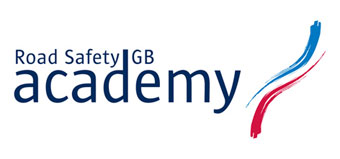Click here to download the full evaluation report
Executive Summary
In 2012 Road Safety GB commissioned Ian Edwards, the author of this report, to develop a Road Safety Practitioner’s Foundation Course. This paper presents the results of the evaluation of the two pilot courses. This evaluation report is based on two sources of data. The first is the course results which are assessed through the completion of 2 assignments. The second was a self-completed questionnaire administered just prior to starting the course and then approximately 3 months post-course. In all 24 people attended the two pilot courses, of these 19 passed the course.
The evaluation was based on the Kirkpatrick (1959) 4 levels:
• Level 1 (Participant reaction): There is good evidence to support the conclusion that the participants felt the course was well presented and that the content was relevant to their role.
• Level 2 (Knowledge/attitudes): The evidence supports the conclusion that the participants’ level of knowledge had improved across the learning outcomes.
• Level 3 (Behaviour): The evidence supports the conclusion that the participants did feel they had changed their behaviour as a result of attending the course, although this is self-report data and therefore must be treated with some caution.
• Level 4 (Organisational results): That on balance the results that Road Safety GB wished to achieve have been achieved. RSGB now have a clear statement of what the role of a Road Safety Practitioner is, a document that clearly outlines the knowledge and skills needed to deliver road safety education, and a course that provides the skills and knowledge required at a foundation level.
Some concerns were identified in relation to the level of the course content being set too high. There are a number of possible explanations for this:
• The standard of the course is set too high.
• That the 5 course participants who were managers raised the intellectual bar with regards to group exercises and discussions.
• The presenter raised the intellectual bar to ensure that the group, including the managers remained engage.
• That Road Safety is a specialist area of education that should be intellectually challenging.
• The course content was pitched at a point that was challenging but achievable.
As the course achieved a good pass rate it is the opinion of the author that the latter two points are most likely to be correct. However, this should be closely monitored as the course is rolled out further.
Whilst the participants give good examples of how they implemented the course content, time pressures, internal politics, limited staffing levels and budgets were given as possible barriers to implementation.
On rolling out the course Road Safety GB needs to give careful thought to how the course will be quality controlled and assured.
Recommendations
• That a quality control process is instigated prior to further roll out of the course.
• That a similar approach to that used in this evaluation is used as part of the quality control process.
• That the course could be promoted as a course that is suitable for both inexperienced and experienced Road Safety Practitioner. However, care should be taken to ensure there is a good mix of experience on all courses. An alternative approach would be to develop a senior RSP course incorporating many of the elements contained in this Foundation course.
• That the content of the course is monitored carefully to ensure that the content of the course has not been set at too high a level for the target group and that the content relating to RSGB is suitable.
• That consideration is given to a wider and more thorough evaluation of the course outcomes, investigating how the implementation of course content reported by the participants benefitted their organisations and road safety.
For more information please contact Ian Edwards
